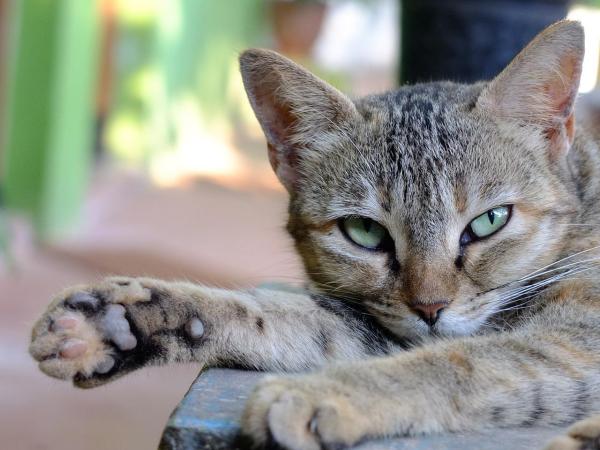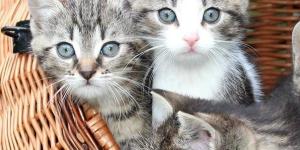Caring for a Neutered Cat



See files for Cats
Caring for our cats is not usually a chore. While we may have to provide them with food and shelter, the responsibilities we need to meet in terms of socialization and engagement are as fun for us as they are necessary for our pets. If we decide to breed our cats for kittens, then this responsibility is greatly increased. If you can't meet it (understandably, most cannot), then having them spayed or neutered is not only best for you, it's best for the cat. Sterilization improves their psychological state and prevents unwanted kittens being brought into the world only to face hardship.
The sterilization process is a routine operation for veterinary surgeons, but it is invasive in most cases. This means the aftercare for your pet needs to be considered. Giving them the assistance and providing the environment they need to heal as fast as possible is imperative. This is why AnimalWised is on hand to ensure you know all that caring for a neutered cat entails, whether male or female, spayed or sterilized, young or old.
Protecting incision wounds
Only female cats can be spayed as this is the word for the process of removing ovaries. Doing so stops their estrous cycle (when cats are in heat) and reduces the symptoms of this period. It also prevents them from becoming pregnant, although it is important to note it is not always 100% successful. For male dogs, this process involves removing the testes or by performing a vasectomy whereby the sperm ducts are cut off. All of these processes should involve some sort of minor surgery. This results in an incision wound, some larger than others. There are other types of castration which don't involve surgery, but are not generally recommended.
As the incision would will go through three layers of the cat's body (the peritoneal plane, the subcutaneous fascia and the superficial plane), the wound will need stitches. The cat, therefore, needs to be prevented from accessing the incision wound, otherwise they will likely release the stitches and require further medical attention.
Some people will use a bandage to keep the wound secure. However, there are two major drawbacks to this option. Firstly, the cat cat still access the wound by trying to remove the bandage themselves. It will be difficult to keep them under supervision at all times to prevent this happening. The other problem is that the wound will be covered and may not heal as quickly.
The best alternative is also one of the strangest looking. An Elizabethan collar is a device which goes round the neck of the animal and prevents them from accessing the wound. This is often made from hard plastic, but inflatable and soft fabric versions are also available.
Sometimes people choose to make their own collar for protection. You can do this by taking an old shirt or polo shirt. It involves cutting out arm and leg holes for your cat so you create a sort of protective suit. It needs to be tied securely at the back to cover the wound. While it can result in your cat being more comfortable during their recovery period, it is tricky and, if done incorrectly, will not be as effective. Following your vet's guidance is recommended.

Care to heal the wound
There is also some care required in helping the wound to heal, other than preventing removal of stitches. To encourage healing, it should be attended to three times a day, but also kept under regular supervision. This means wiping it with gauze and certain sterilizers such as iodopovidone. This is used to cleanse the area of dried blood and any seepage which may be present.
An antibiotic such as neomycin may also be necessary. This is an antibiotic commonly found in topical ointments and creams and is used to speed up healing on the wound site. Keeping the wound area clean and sterilized is important as it reduces the chance of infection. This is why you will need to keep them indoors for the duration of the convalescent period. Take particular care after they use the litterbox or anywhere there might be hazardous material.

Food and diet after neutering
As your cat is going through a difficult time and is recuperating from changes to their body, their food routine will not be the same as usual. This includes access. Don't put their food anywhere it is difficult to access as they may end up knocking their stitches out or even simply banging and causing pain. Even jumping is not recommended during the early stages of recovery.
They may feel tender after their operation. This means they will likely lose their appetite for a short while, so don't force them to eat. Let them regain their appetite at their own pace. However, if they do not eat for a significant period of time, it is possible there is something wrong. If this is the case, get in touch with your vet for advice.
During the first few days after an operation, you should reduce their food and water intake by about half. If you have every had a hospital stay and been looked after by parent or someone close to you, it is likely they have treated you special for this time. You should do the same with your cat. Giving them wet food only (not something you should do on a regular basis) will help keep them sustained. It is easier to eat than dry food and is also usually more enticing for cats.
With male cats in particular, it is important to keep an eye on their diet. Some male cats have a tendency to become overweight due to the hormonal changes caused by castration, so you may need to be extra careful.

Other care needs after neutering your cat
If you have other pets in the house, then you will need to be careful. These can be other cats, but other pets such as dogs and rabbits also need to be considered. Even if they are only playing, they can disturb the stitches or even cause extra stress to your cat trying to recuperate. It is best to keep the entire house as quiet and free of disturbances as much as possible. If you have decided to adopt a stray or adult cat, then this time is particularly delicate. The cat will need to be spayed or neutered ASAP to prevent unwanted pregnancy, but they will also need time to socialize and become accustomed to their new environment.
It is also normal for a cat recuperating from being neutered to be more irritable. They may not want top be touched or petted as much as usual. This is hopefully from being tender and not because they hold you personally responsible for the trauma they have just gone through. Either way, positive reinforcement is necessary to help them recuperate as well as strengthen your bond. If you see any symptoms which seems like there may be a concern, such as vomiting, diarrhea or excess of blood from the wound, contact your veterinarian for help.

If you want to read similar articles to Caring for a Neutered Cat, we recommend you visit our Extra care category.









